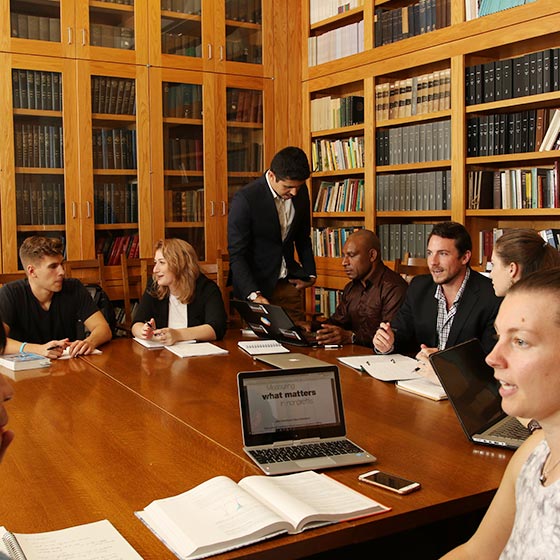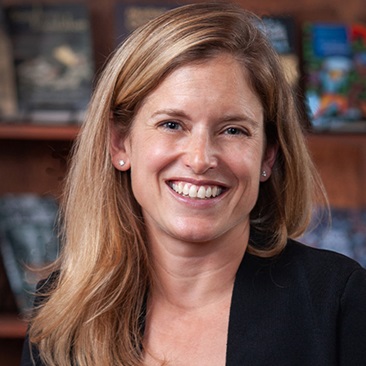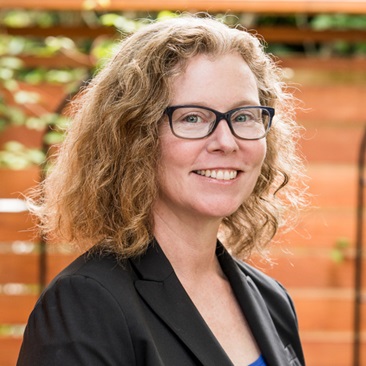complete master’s degree options in as few as 12 months
award-winning faculty of national and international renown
global professional network 37,000 strong
Explore Master’s Degrees
Public Administration
Master of Public Administration
Prepare to lead positive change through a rigorous yet efficient array of skills-building courses.
- On campus, in Syracuse, N.Y.
- 40 credits plus optional internships
- Complete full-time in 12 to 18 months
Executive Master of Public Administration—On Campus or Online
Fill gaps in your knowledge with a program tailored to your career goals—five to seven years of experience required. An online option for working professionals provides added flexibility.
- Online or on campus in Syracuse, N.Y., options (separate programs)
- 30 credits
- Complete part- or full-time in as few as 12 to 15 months
International Relations
Master of Arts in International Relations
Satisfy your curiosity about the world, and develop skills and knowledge to change it for the better.
- On campus, in Syracuse, N.Y.
- 40 credits with a required global internship
- Required career track selection to focus your studies
- Complete full-time in 18 months
Master of Arts in Public Diplomacy and Global Communications
Prepare to drive change in a range of international contexts through effective public and interpersonal communications. One powerful degree, two schools: the Maxwell School and the S.I. Newhouse School of Public Communications.
- On campus, in Syracuse, N.Y., and Washington, D.C.
- 43 credits with a required global internship
- Complete full-time in 18 months
Executive Master's in International Relations
Improve your leadership and management skills and global affairs knowledge—seven years of experience required.
- On campus, in Syracuse, N.Y.
- 30 credits
- Complete on a part- or full-time basis
Executive Master’s in International Relations in D.C.
Leverage the combined experience, knowledge and networks of two top-ranked institutions—the Maxwell School and the Center for Strategic and International Studies—and earn your degree while you work in D.C. Seven years of experience required.
- On campus, in Washington, D.C.
- 30 credits
- Complete part-time in as few as 18 to 20 months
Doctoral Program
PhD in Public Administration
Educate the next generation of public service leaders and conduct research that moves the field of public administration and policy analysis forward.
- On campus, in Syracuse, N.Y.
- 72 credits (36 credits beyond the M.A.)
- Full-time residential program, typically completed in 4.5 years
Department Admission Events
We offer a range of in-person and virtual opportunities to learn more about the Maxwell School and degree programs offered by the Public Administration and International Affairs Department, answer questions about the application process, and help you work toward your goals.
See All Department Admission EventsSchedule a One-on-One Meeting
to ask more in-depth questions not covered in the group information sessions. These individual meetings are informational in nature and are not admission interviews.
Request a MeetingStudy in Washington, D.C.
Our D.C. headquarters at the Center for Strategic and International Studies, top-ranked by the Global Go To Think Tank Index, gives students access to leading minds in the world of policy and international affairs, competitive internships, employment opportunities and a deeply engaged network of D.C.-based alumni.
Need a midcareer boost? Explore our Certificates of Advanced Study
We offer a variety of regional, topical and skills-based Certificates of Advanced Study (CAS) to help you focus and refine your expertise. Some CAS can be earned as part of a master's program while others can be earned independent of a degree. Learn to use data to formulate and analyze policy, deepen your knowledge of effective public management practices, develop techniques to promote collaboration and resolve conflicts, broaden your expertise in a specific region of the world, and more.

Racial-Ethnic Gaps in Pandemic-Related Economic Hardship: Age Differences among Older Adults
Emily E Wiemers, I-Fen Lin, Anna Wiersma Strauss, Janecca A Chin, V Joseph Hotz, Judith A Seltzer
Journals of Gerontology: Series B, June 2024
Objectives: Racial-ethnic disparities in experiences of economic hardship during the pandemic are well documented in the population overall and among older adults. Existing research shows that this economic hardship was much less common at older than younger ages. Little is known about the intersection of racial-ethnic and age disparities in pandemic-related hardship in later life. This research report investigated racial-ethnic gaps in economic hardship by age group among older adults.
Methods: Data were from the 2018 and 2020 U.S. Health and Retirement Study (HRS) including the 2020 COVID-19 module. We estimated Heckman-corrected linear probability models to examine differences in experiences of pandemic-related economic hardship in the 2020 HRS by race-ethnicity (non-Hispanic White, non-Hispanic Black, U.S.-born Hispanic, foreign-born Hispanic) across age groups (55-64, 65-74, 75+). In the multivariable analysis, we controlled for sociodemographic characteristics, participation in social programs, preexisting health conditions and behaviors, and economic resources from the 2018 HRS.
Results: Experiences of economic hardship declined with age within each racial-ethnic group. Racial-ethnic gaps in hardship remained at older ages without any controls. However, when all controls were added, racial-ethnic gaps in economic hardship were eliminated for those ages 75+. Individual characteristics prior to the pandemic explained racial-ethnic differences in hardship for the oldest adults (75+) but did not explain gaps for those ages 55-74.
Discussion: Results point to structural factors generating new racial-ethnic gaps in pandemic-related economic hardship among those approaching retirement (ages 55-74) that did not affect the oldest adults (ages 75+).
Related News
Commentary

Aug 1, 2024
Commentary

Jul 31, 2024
Commentary

Jul 30, 2024


